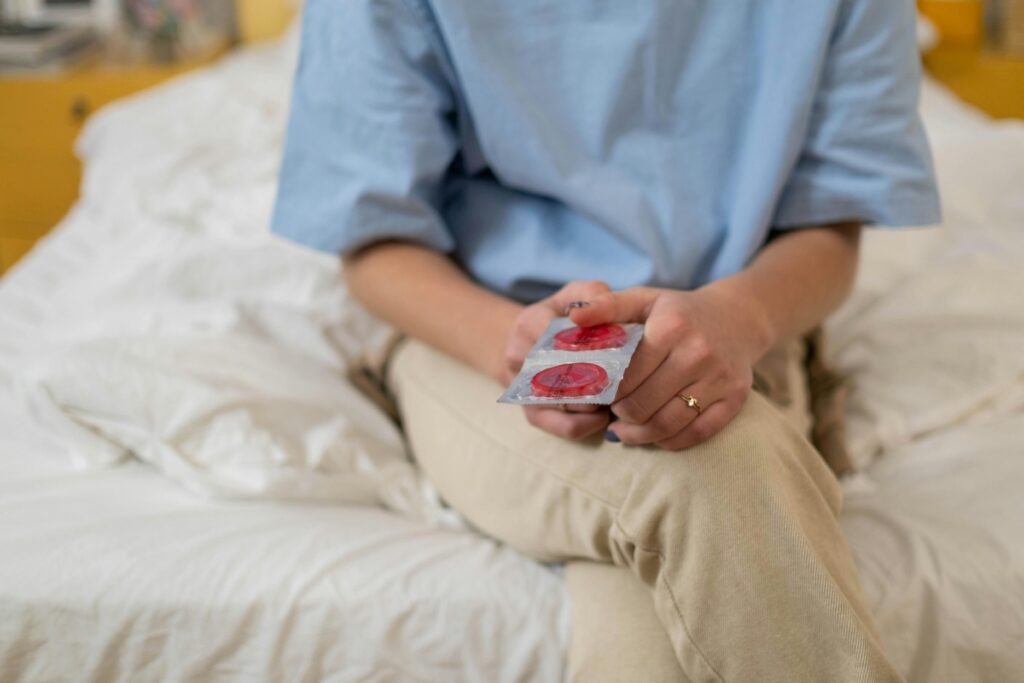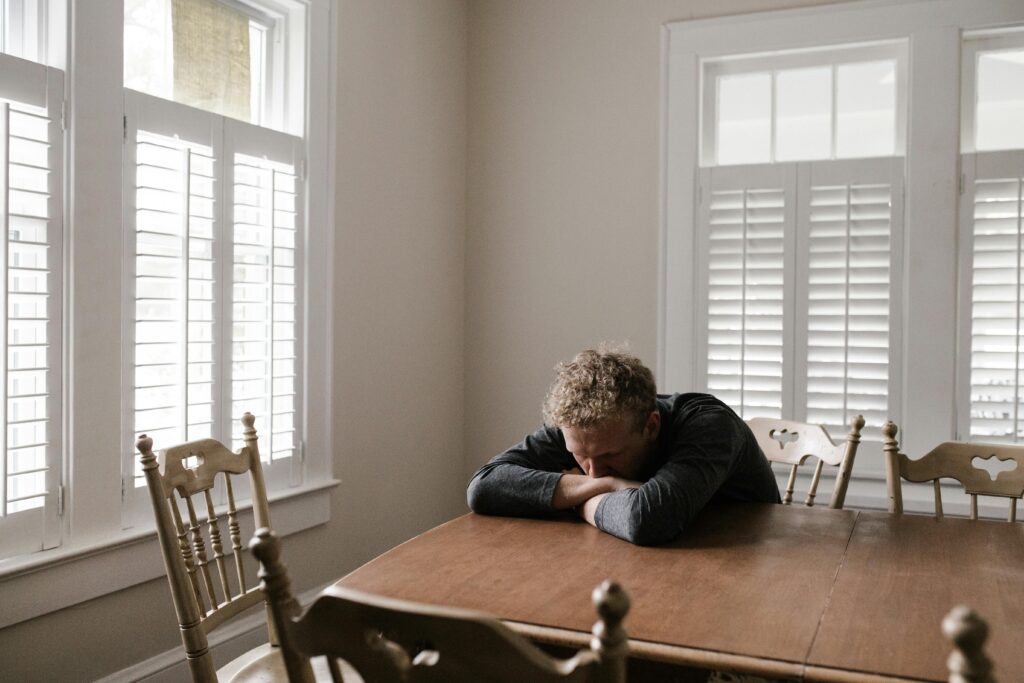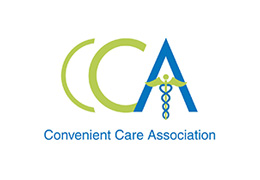One of the most common but rarely talked about issues for men is premature ejaculation (PE). The condition impacts men of all ages, with nearly one in three experiencing symptoms at some point in their lives.
Fortunately, premature ejaculation is highly treatable with many options available, from small behavior changes you can make in the bedroom to medications that can be discreetly prescribed and delivered to your doorstep—or wherever you are on the road.
Let’s break down what premature ejaculation is, why it happens, treatment options, and tips for long-term success. Additionally, we’ll answer some of the most common questions that men and their sexual partners have about PE.

What is premature ejaculation?
Premature ejaculation (PE) happens when a man ejaculates sooner than he or his partner would like during sex. While virtually all men will ejaculate too soon from time to time, when it becomes a common pattern, treatment may be needed (Cleveland Clinic).
PE is one of the three main ejaculation problems men can encounter. When explaining the condition, it’s helpful to explain and compare the different types (NHS).
- Premature ejaculation: Ejaculating before you or your partner would like during sexual arousal.
- Delayed ejaculation: Major delay before being able to ejaculate, or being unable to ejaculate at all, even with an erect penis.
- Retrograde ejaculation: Semen travels backward into the bladder through the urethra (urine tube). As a result, you may produce no semen, minimal semen, or cloudy urine mixed with semen.
Premature ejaculation is by far the most common issue, as it happens to men of all ages, even those with strong virility (sex drive) and performance ability.
What causes premature ejaculation?
There’s no one single cause of PE—it’s often a mix of psychological (mental) and biological (physical) factors. Some men may always have this issue (lifelong PE), while others develop it later on (acquired PE).
Here are some of the most common premature ejaculation causes:
- Psychological: Stress, anxiety, and depression are major culprits. If you’re feeling pressure from work, finances, or relationships, it can affect your sex life. Performance anxiety—worrying too much about “lasting”—often only makes things worse (Mayo Clinic).
- Biological: Low levels of serotonin (feel-good chemicals) in the brain, hormonal imbalances, or even an overly sensitive penis can contribute to PE. Medical conditions like erectile dysfunction (ED) may also play a role. If you’re dealing with ED, you might rush through sex out of fear of losing your erection, creating a vicious cycle (NCBI).
- Lifestyle and habits: Being a trucker comes with unique challenges—long hours on the road, limited exercise, and unhealthy eating habits can all take their toll. Toss in irregular sleep patterns, and it’s easy to see how these factors could contribute to PE.
- Other underlying medical issues: Premature ejaculation can be a symptom of other health issues, such as prostate or thyroid problems (NHS).
Solutions that work
Many people are embarrassed to talk about PE. The stigma around sexual health issues doesn’t help—especially among men, where discussing feelings or wellness can feel taboo. This silence means many suffer in the shadows, not realizing that PE is both very common and highly treatable—using medication, therapy, or behavioral techniques.
Tackling premature ejaculation: Treatments that work
If you’re looking to take control of your sexual health and find relief from premature ejaculation, there are many options.
1. Behavior changes
Behavioral strategies are often the first line of defense. These methods focus on delaying ejaculation through practice and conditioning:
- Squeeze technique during sex: When you are close to climaxing, gently squeeze the base of the penis to reduce arousal. This technique requires practice and patience but can be highly effective over time (Harvard Health).
- Squeeze technique during masturbation: You can practice the squeeze technique. When you masturbate, stop just before ejaculation and squeeze the head of your penis for 10 to 20 seconds. Then let go, wait another 30 seconds, and resume masturbation again. Repeat this process several times before you ejaculate (NHS).
- Start-and-stop method: This involves stimulating yourself until you’re close to an ejaculation, then stopping until the urge passes. Repeating this process several times can help you build endurance and control. It’s similar to the squeeze technique, but you do not squeeze the head of the penis (Harvard Health). This method is also referred to as edging (Healthline).
- Pelvic floor exercises (Kegels): Strengthening your pelvic floor muscles can also improve control during sex. These exercises involve tightening and holding the muscles you use to stop urination. Kegels can be done anytime, anywhere—even while you’re driving down I-80 (UroLife).
- Partner on top: Try having sex with your partner on top, which allows them to pull away when you are near ejaculation (NHS).
- Pre-sex masturbation: Masturbate one to two hours before having sex (NHS).
2. Medications
Many times, medications can offer the extra help you need. These treatments range from off-label antidepressants to topical anesthetics:
- Sertraline: Commonly used to treat depression, sertraline (Zoloft) is a selective serotonin reuptake inhibitor (SSRI). Taken daily, it can help delay ejaculation. Sertraline for premature ejaculation is commonly prescribed, along with other SSRIs like paroxetine (Paxil) and fluoxetine (Prozac) (NCBI).
- Tramadol: Developed as a painkiller, tramadol also helps delay ejaculation. However, due to the risk of dependency, it’s generally not the first treatment option (NCBI).
- Topical anesthetics: Numbing creams, sprays, and premature ejaculation wipes can increase sensitivity and help you last longer. Just remember to wash off your penis 5-10 minutes before sex or use a condom to avoid numbing your partner (Cleveland Clinic, Medical News Today).
- Condoms: Using a thick condom can help decrease the sensation, and there are even specialized condoms that contain a numbing agent inside (NHS).

3. Therapy and counseling
If psychological factors are at play—like anxiety, guilt, or relationship stress—therapy can be a game-changer:
- Sex therapy and cognitive behavioral therapy (CBT): Working with a therapist who specializes in sexual health can help overcome performance anxiety and any other issues. It can also provide a space to talk openly about concerns that may be affecting your sexual performance (Mayo Clinic).
- Couples counseling: PE isn’t just a solo issue—it affects relationships, too. Talking it out with a partner and a professional can clear the air and bring you closer together.
Real discretion, real solutions
We know it’s not easy talking about premature ejaculation or men’s sexual health, which is why we are committed to discreetly providing solutions that work. PE is a common, treatable medical condition.
If behavioral changes alone don’t work, or you want to go straight to medication, Trucker’s Body Shop can quickly and privately connect you with a doctor in an online e-health visit.
Every day, Trucker’s Body Shop connects hundreds of men to convenient and affordable online healthcare with medications delivered directly to their doorstep or truckstop within a few days.
How to start the conversation: Straightforward options
Navigating healthcare isn’t easy when you’re on the road all the time. Here’s how to handle it while you’re on the road:
- Try a discreet e-health visit: The easiest option. Services like Trucker’s Body Shop connect you with a doctor online, right from your cab. No time lost, no waiting rooms—just real talk and a plan that works for you.
- Have an honest conversation with your partner: If you’re in a relationship, start with a chat or a phone call. Open up about what’s going on—honesty builds trust and can help you both figure out the next steps together.
- See a doctor when you can: If you have time, a face-to-face with a healthcare provider can provide peace of mind.
Tips for long-term success
Managing PE isn’t about finding a one-size-fits-all cure—it’s about finding what works for you and sticking with it. Here are some other tips:
- Stay consistent: Whether it’s exercise, medication, or talk therapy, stick with your approach. Give it time to work, and once it starts working, keep with it.
- Manage stress: Life on the go is stressful. Consider stress-reducing activities like meditation, deep breathing exercises, or even taking a moment to stretch outside the cab.
- Live healthier: A balanced diet, regular exercise, and better sleep can improve overall health and sexual performance. Simple changes like cutting back on caffeine or quitting smoking can have a significant impact.
- Don’t be afraid to adjust: Sometimes, you need to tweak your approach to treating PE. If one method isn’t working, don’t be afraid to try another option or two or more in combination.
Final word: Premature ejaculation is challenging but treatable
Premature ejaculation can be challenging, but it doesn’t have to run your life or dictate your self-worth. It’s a common, highly treatable condition that roughly one in three men will experience.
If you’re ready to take back control and find the right solution for you, start by reaching out for a discreet, affordable e-health visit. Many men can get a prescription mailed directly to their cab or doorstep within 48 hours.
Frequently asked questions (FAQs)
How can I cure my premature ejaculation?
Many men can treat this condition by trying different methods on their own (NHS). These include:
- Masturbating for an hour or two before sex.
- Using a thick condom to help decrease sensation.
- Using a condom with a numbing agent inside.
- Using topical numbing creams or sprays such as lidocaine or prilocaine. Typically, a male should apply these to the head of the penis about 20–30 minutes before sex and then wash the penis around 5–10 minutes before sex. Wearing a condom can improve effectiveness (Medical News Today, Urology Care Foundation).
- Having sex with your partner on top so they can pull away when you are nearing ejaculation.
Weight loss, exercise, and a healthier diet can also help treat premature ejaculation and improve overall sexual health (NIH).
Why am I suddenly ejaculating quickly?
Ejaculating too quickly can happen for many reasons. The most common are nervousness or anxiety about being with a new partner, lack of confidence, being overly aroused, alcohol, drugs, or mental health issues such as stress or depression (Cleveland Health).
Is premature ejaculation all mental?
No, not necessarily. The exact cause of premature ejaculation isn’t well understood. While doctors once thought it was “all in the head,” providers now know that biological (physical) factors play a role. A health visit is needed to understand what’s causing your premature ejaculation and find the best course of treatment (Mayo Clinic).
How to mentally stop premature ejaculation?
Psychological therapy helps many men treat premature ejaculation. This “talk therapy” allows patients to talk through any negative thoughts or feelings that may be negatively impacting their sexual health.
Does premature ejaculation go away on its own?
In some instances, yes. For many men, it is a minor issue that will pass on its own. The important thing is to not let your anxiety or stress build and realize it’s a temporary, normal state.
At what age does a man stop ejaculating?
There’s not a specific age or age range when men stop ejaculating. After reaching sexual maturity, many men can ejaculate for their entire life, while some may experience difficulty ejaculating at different stages (Healthline).
How often should a man release sperm?
There’s no “should” to it. There’s no evidence that a man can release too much sperm, as long as it feels good for him—and any partner involved. There may be many health benefits to frequent sex and ejaculation, although a normal or optimal amount will be different for each person (Medical News Today).
What can I drink to last longer?
There isn’t one specific beverage you can drink to last longer in bed; what might “work” for one man may not work for another.
Some men, however, say the following drinks are helpful in increasing sexual stamina:
- Water
- Pomegranate juice
- Ginseng tea
- Green tea
- Ginger tea
Ultimately, being well-hydrated can help you be at peak physical and sexual performance.











